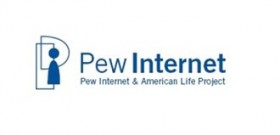Pew: The Future of the internet 2020

Maandagmorgen, een nieuwe week in een nieuwe maand. Voor wie na een regenachtig weekend nog steeds tijd in zijn agenda heeft ingeruimd om “even bij te lezen”: we brengen je graag The Future of the Internet van Pew Research in samenwerking met Elon University. “Experts and stakeholders say the Internet will enhance our intelligence – not make us stupid. It will also change the functions of reading and writing and be built around still?unanticipated gadgetry and applications,” lezen we in de inleiding van een lijvig rapport zonder plaatjes (48 pagina’s). 895 tech experts werden via een online survey geinterviewd. De uitkomsten en het rapport vind je hieronder:
Google maakt ons niet dom. Van de geïnterviewde experts is 76 procent het eens met dit statement. Lezen, schrijven en het verwerken van kennis zal door het internet positief worden beïnvloed. Met deze stelling is 65 procent het eens, 32 procent ziet internet hier juist als een bedreiging.
Innovatie online zal ons blijven verrassen de komende tien jaar. 80% van de experts was het erover eens dat “hot gadgets and applications that will capture the imaginations of users in 2020 will often come ‘out of the blue.’”
Internet zal een vrijhaven blijven. Of toch niet? Wie er in ‘controle’ is over en op het internet zal niet minder belangrijk worden de komende jaren. In 2020 behoort anonieme online activiteit volgens de helft van de ondervraagde experts tot het verleden, de andere helft denkt dat het nog steeds mogelijk is om je in 2020 anoniem over het internet te bewegen.
Ook een Nederlander onder de geïnterviewden. Marcel Bullinga (zie ook dit filmpje) van futurecheck.com over Google en of de zoekreus ons nu dommer of slimmer maakt:
“Google will make us stupid and intelligent at the same time. In the future, we will live in a transparent 3D mobile media cloud that surrounds us everywhere. In this cloud, we will use intelligent machines, to whom we delegate both simple and complex tasks. Therefore, we will loose the skills we needed in the old days (e.g., reading paper maps while driving a car). But we will gain the skill to make better choices (e.g., knowing to choose the mortgage that is best for you instead of best for the bank). All in all, I think the gains outweigh the losses.”
Even verderop is Doc Searls aan de beurt, de co-auteur van The Cluetrain Manifesto over “indwelling”:
“The hottest gadgets in 2020 will certainly involve extending one’s senses and one’s body. In fact, this has been the case for all inventions since humans first made stone tools, and painted the walls of caves. That’s because humans are characterized not only by their intelligence and their ability to speak, but by their capacity to extend their senses, and their abilities, through their tools and technologies. Michael Polanyi, a scientist and philosopher, called this indwelling. It is through indwelling that the carpenter’s tool becomes an extension of his arm, and he has the power to pound nails through wood…. The computers and smart phones of today are to some degree extensions of ourselves, but not to the extent that a hammer extends a carpenter, a car enlarges a driver or a plane enlarges a pilot. Something other than a computer or a smart phone will do that. Hopefully this will happen by 2020. If not, it will eventually.”

Google maakt mensen dom omdat je er geen waarheid mee vindt, maar consensus.
@Carl In Google vindt je zo relevant mogelijke informatie in verschillende vormen. Wat is hier niet waar aan dan?
@Danny: Het probleem is dat je nooit 100% zeker weet wat waar is, en wat niet. ’t Enige wat Google je vertelt is welke zienswijze het populairst is. En dat is niet noodzakelijkerwijs ook altijd de wáárheid.
@Carl: De wáárheid bestaat niet. De waarheid ook niet.
Google is niet geïnteresseerd in de waarheid maar in ‘waar’.